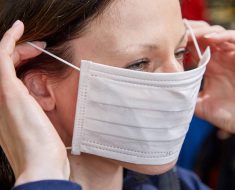In German hospitals, surgical instruments, implants and other medical products threaten to become scarce. The EU wants to unify the controls, and radically aggravate – in fact, in order to protect patients better. However, it is missing the tests. Manufacturer could take for this reason, tried and tested products from the market.
“We run the risk that, in hospitals, certain medical products are missing from may,” warns the German hospital society. Impetus of the Reform of the breast implants scandal in 2010. A French company had used hundreds of thousands of women inferior silicone.
The new regulations provide that, for a majority of products in the future, efficacy and Use in clinical studies is demonstrated. A meaningful renewal, yet essential products, such as the heart required a pacemaker only a comparatively superficial examination. The new regulations, however, differentiate much between the various products.
Accordingly, the manufacturer must submit in the future for surgical scissors: a clinical evaluation. It is unclear how this should look like. Is sufficient for the evaluation of a surgeon, that the scissors cut? And as the question of the side effects is answer? “Often, it is not clear what is required of the company,” says Meinrad Kempf from the industry Association of Medical Mountains.
“As a Patient, I Worry about”
The EU is said to want a lot more Monitoring – and throw everything in a pot, also criticized TÜV Süd expert Bassil Akra. “There is a screw, a thread proven for 20 years, and now the EU is calling for a clinical trial?” Decades of practical experience will simply forget it. A heart surgeon must be documented for a rating exactly, since when he had used many of these threads. “This is a bureaucratic Monstrosity,” says the TÜV expert.
Add to bottlenecks at the checkpoints. Until the Start of the Reform in 2017, Europe-wide there were 83 Agencies, the medical products review and permit were allowed to. Nine months before the end of the transitional period, the EU has named a special Commission in Europe, as yet, only two of these tasks: The TÜV Süd in Munich and the BSI Institute in UK.
Even though there are still a few to come, it is questionable whether the remaining nine months is enough time to the mountain of applications to work through. “As a Patient, I Worry about if a manufacturer is not notified body”, says the TÜV Süd expert Bassil Akra. Some manufacturers have reduced the size of its offering by a third. Established products disappear from the market. Especially implants to be affected.
“A pacemaker for infants, for example, is rarely used, but is then very important,” says Kempf. Another example is a retinal implant, A mid-sized company that manufactures it, on there.
“This is a bureaucratic Monster”
Since the EU Commission has decided on the new regulation by 2017, has changed this once already, and nine statements sent in pursuit. The next correction was announced, says Akra. Originally, the documentation of all needles and tubing should be checked for now, but again, only samples. “This shows how insecure the Whole thing is. We have to change everything again, our people re-train.”
The umbrella organisation of the approximately two thousand hospitals in Germany, the DKG, considers that it is now “virtually certain” that to may not all the products have their approval, and which are missing. Particularly worrying is the be, for example, in the case of reusable surgical instruments.
The DKG hopes that the Federal Minister of health in Brussels, an extension of the deadline. The next mess with laboratory devices, the impending and it is already at the hospital Association, because “the regulation on In-vitro-diagnostics, controls the same difficulties”.
Editors ‘ note: an earlier Version of the article as an example of a “network skin has been called-implant for people with cataracts”. In fact, people with cataracts lens get implanted. We have corrected the error.





